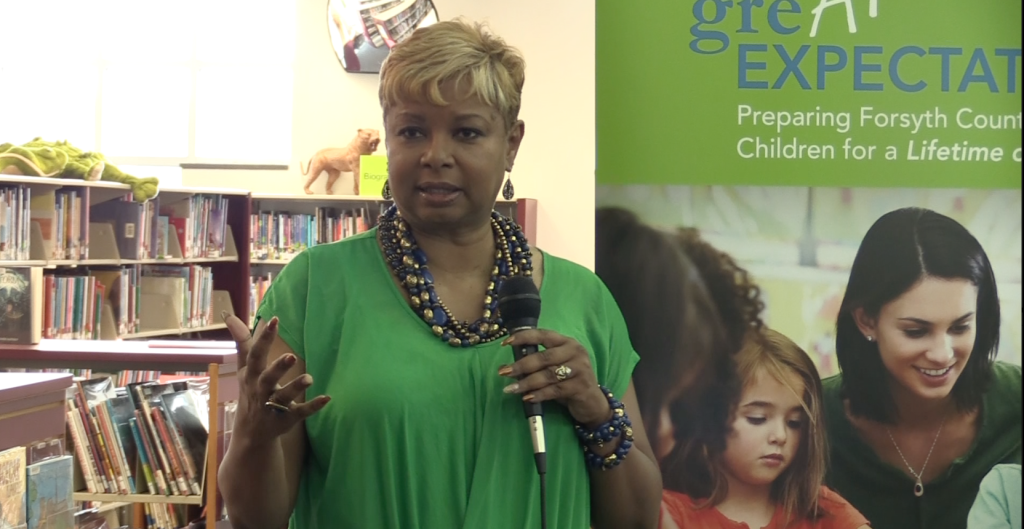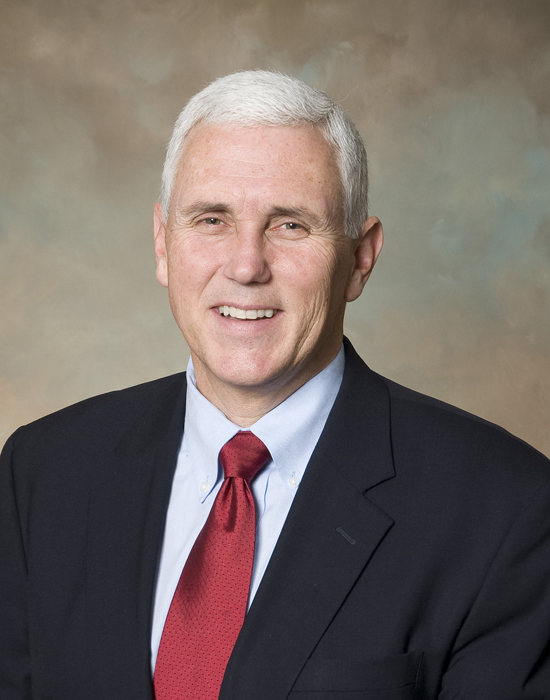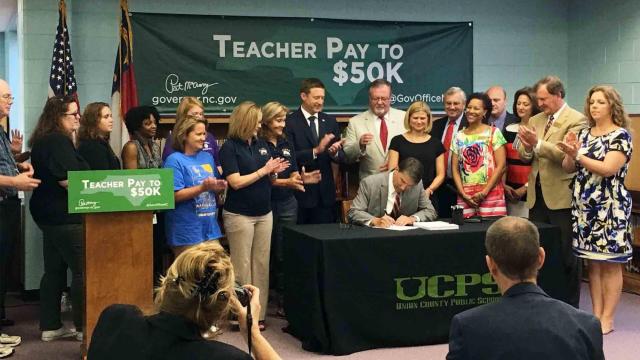Adjournment
Lawmakers are wrapping up the 2016 session. They are finalizing legislative work and are expected to end the 2016 session today.
2016-17 Budget
A compromise budget for the 2016-17 fiscal year was released to the public on Monday. The Senate has passed the budget. The House gave final approval today and will be sending the budget to the Governor.
The biggest provision in the budget for public schools is an average 4.7% salary increase for teachers. This is closer to the House proposal than the Senate’s (6.7%). In addition, the teacher salary schedule will restore annual step increases for teachers in years 0-14. Once a teacher reaches year 15, he/she will be locked into the same salary for the next 10 years. The provision will raise average teacher salaries to over $50,000 in 2016-17 and $55,000 over the next three years. School administrators will receive a step increase and a 1.5% increase to base salaries at each step. Noncertified school personnel will also receive a 1.5% salary increase. School administrators and noncertified personnel will also receive a one-time 0.5% bonus. Below are the notable items that were included and not included in the compromise budget.
NOT Included in the Compromise Budget:
The provision to restrict the definition of year-round schools was NOT included in the compromise budget. In its place is a requirement for all local boards of education to report to the legislature about the start and end times for their schools.
No funding was appropriated for the Early College High Schools that requested State funding for the 2016-17 school year.
Included in the Compromise Budget:
Opportunity Scholarship Voucher Program. Doubles funding in 2016-17. Establishes a reserve fund to forward fund the program. Creates an automatic $10 million increase in appropriations each fiscal year after 2016-17 to be directed to the reserve fund over the next decade, topping out at $134.8 million in 2027-28.
Non-Teacher Merit Pay. LEAs will be required to enact policies to award merit pay to non-educator employees. Non-educator employees would be school administrators, central office staff, and noncertified personnel other than teacher assistants. LEAs are to receive $17 million to distribute for the merit pay but it is unclear how the money is to be allocated.
Virtual Charter Pilots
- Increases the percentage of teachers who can reside out of NC from 10% to 20%.
- Retains 25% withdrawal rate cap.
- Requires additional categories of students to not be included in the withdrawal rate calculation: any student enrolled less than 30 days; students who move out of state; students who withdraw for a family, personal or medical reason.
ADM Growth. $46.8 million to fully fund ADM growth.
Performance Pay for Grade 3 Teachers. $10 million is set aside for a pilot program where third grade teachers are given salary supplements for achieving high growth scores on student reading assessments. Half of the total set-aside would go to the teachers in the top 25% of statewide grade 3 reading growth scores and the other half would go to each LEA’s top 25% of grade 3 reading growth achievers.
Advanced Teaching Roles/Elevating Educators Act. Establishes a three-year pilot program where 10 LEAs would experiment with models of differentiated pay for teachers linked to advanced teaching roles (new or additional roles and responsibilities). Supplements could be up to 30% above what is set for the teacher on the State salary schedule. The appropriation for this pilot is $1 million.
A-F School Performance Grades. The 15-point grading scale is extended for another three years (it is scheduled to end with this year’s set of grades).
Lab Schools. Each UNC school of education will be required to establish a laboratory school. The purpose of the lab schools would be to “improve student performance in local school administrative units with low-performing schools by providing an enhanced education program for students residing in those units and to provide exposure and training for teachers and principals to successfully address challenges existing in high needs school settings.” These lab schools will operate similar to and be funded like charter schools.
Click here for the text of the compromise budget. Click here for the money report.
Achievement School District Bill Passes
HB 1080- Achievement School District, passed the Senate after a few amendments from the floor. The House then concurred in those changes and the bill is now on its way to the Governor for his signature. One amendment to the bill tightened the criteria for selecting a charter management organization to take over a school in the Achievement School District. Another amendment allows Charlotte-Mecklenburg to create an Innovation Zone among its Project LIFT schools and also include five low-performing schools. A few Senators tried to run amendments to prohibit their LEAs from having any schools transferred to the ASD but those amendments all failed.
The Governor has 30 days to sign or veto the bill. Please contact the Governor’s office and ask that he veto HB 1080.
Talking Points on HB 1080
- The ASD framework has not shown to be successful in other states that have experimented with similar measures, including Tennessee and Michigan.
- HB 1080 creates more bureaucracy and big government, yet another example of big brother knows best. The assumption at the heart of HB 1080 is that the low-performing school problem lies almost primarily with local administrators and staff when actually many times the problems run much deeper.
- Four actions were made permissible to North Carolina school districts for low-performing schools per the Race to The Top Grant provisions, of which one was to operate a low performing school like a charter. School districts have not implemented all of these available procedures.
- HB 1080 requires local school districts to maintain school buildings despite the fact the State has taken control of the campuses. Also the State Board would be making the final decision in a number of situations where the local board and the charter operator disagree over the need for a renovation or repair. This would put Raleigh in the position of dictating how local officials prioritize capital needs, almost certainly leading to conflict.
- The local school district will also continue to provide transportation for students to the school. Again, this is another responsibility the school district should not be required to maintain if the state assumes control of a school.
- This framework could cause a school districts to deal with challenging staffing issues.
- The criteria for putting a school into the ASD is based on a flawed grading system that only counts school growth as 20% of the grade.
- The bill tries to entice districts to transfer schools to the ASD by allowing them to create “Innovation Zones,” areas where they can operate schools with charter-like flexibility. This provision is a red herring because school districts already have the authority to apply to the SBE to operate some schools with charter-like flexibility and some have already utilized this option.
School Board Lawsuit Moratorium Removed
A measure to prohibit school boards from taking legal actions against county commissioners was removed from HB 561 by a conference committee. In its place, the conference committee agreed to language establishing a study to look at the process for settling local funding disputes. The study is to be conducted by the legislature’s Program Evaluation Division. Among the issues to be studied as part of this review are: examining school board and county commissioner fund balances; how school boards and county commissioners have used fund balances; historical use of the funding dispute process; an analysis of alternative ways for local school boards to get local funds.
The results of this study are due no later than May 1, 2017. Click here to read the compromise bill, which is on its way to the Governor.
Other Notable Bills
HB 100, which would cut off school capital funds for counties found to be noncompliant with immigration laws, and HB 3, which includes a constitutional amendment to reduce the income tax cap to 5.5%, both passed the Senate this week and were sent to House Rules.
SB 867 is a bill to require criminal background checks for teachers and other school personnel. It has gone through several changes and the most recent version was approved by the Senate Finance Committee this morning. Many of the concerns voiced by LEAs have been addressed in this latest version, which you can find here.
SB330 is a bill filed by Sen. Tom McInnis (R-Richmond) to require all local boards of education to adopt a policy governing change orders to any construction and repair work contracts. The bill outlines criteria that must be addressed in the policy. SB 330 has been signed into law.
HB 657, legislation to create two separate High School Math course tracks, is still in conference as of this morning. Click here to see the conferees.
HB 1074. This bill would require all LEAs to test drinking water in schools older than 30 years for the presence of lead. This bill has passed the House and has been sent to the Senate Health Committee.
Leanne E. Winner
Director of Governmental Relations
N.C. School Boards Association
(919)747-6686 direct dial
Bruce Mildwurf
Associate Director of Governmental Relations
N.C. School Boards Association
(919) 606-3916 mobile
Bryan Holloway
Associate Director of Governmental Relations
N.C. School Boards Association
(919)747-6677 direct dial






